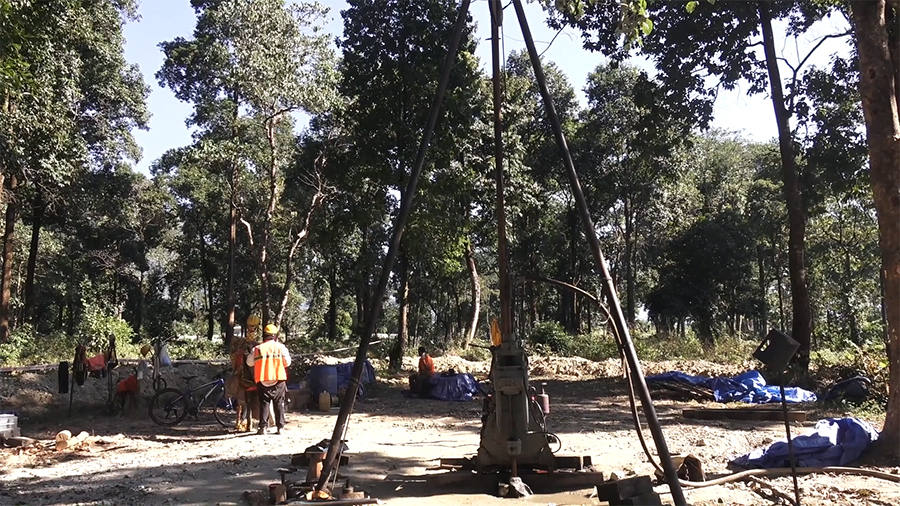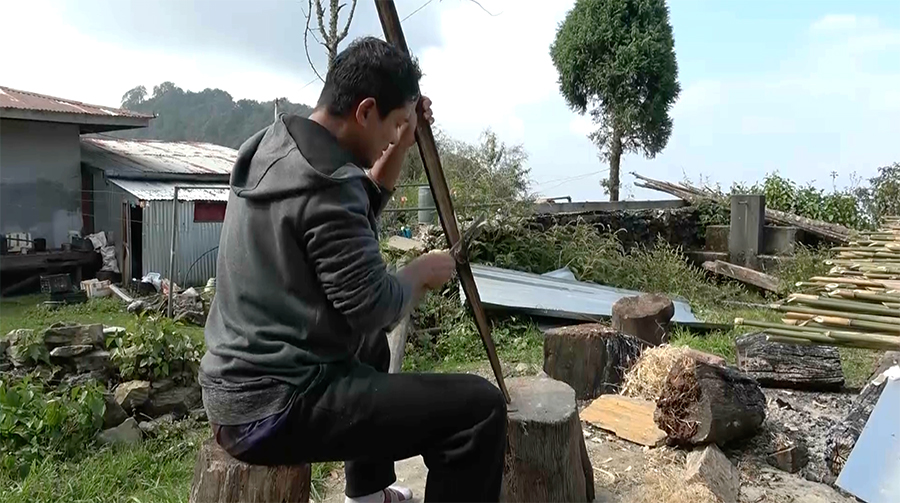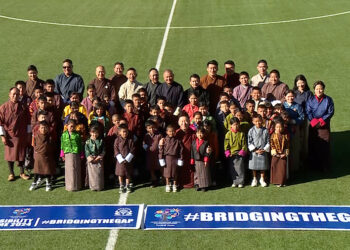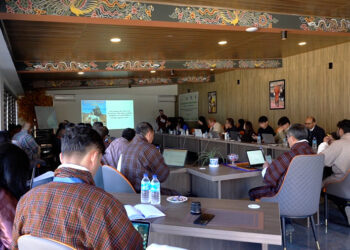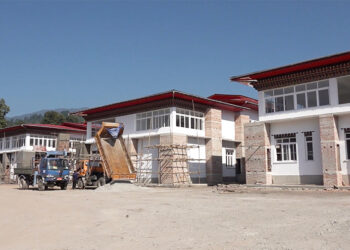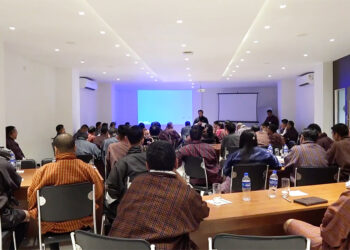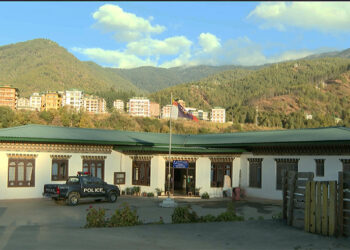Recent Stories
Turning passion into profit: Pema Gatshel man crafts future for traditional archery
In Pema Gatshel’s Shumar Gewog, the sound of bamboo being carved into bows and arrows echoes a story of tradition...
NRDCL shifts to locally sourced timber, making furniture more affordable
Producing furniture using locally sourced wood has not only helped the Wood Craft Centre stop rubberwood import but also made...
Bhutan to build landmark international airport in Gelephu by 2029
During the 117th National Day celebrations at Changlimithang, His Majesty The King announced that Bhutan's priority for the next five...
New landfill to address mounting waste issue in Sakteng
Sakteng in Trashigang, which once boasted of rich, untouched wilderness, is now facing an increasing concern about waste management. The...
WASH FIT Programme sees success, local leaders urge more inclusive facilities
Sanitation and hygiene in healthcare centres have seen significant improvements nationwide in recent years according to local leaders and health...
Public construction quality still lags – RAA Annual Report
The Royal Audit Authority's latest annual report reveals persistent quality issues in public construction, with 139 cases of poor work...
Politics
RCSC defends PME category, proposes targeted support for civil servants
The Royal Civil Service Commission (RCSC) indicated that it is exploring alternative support measures for civil servants classified under the...
Popular
-
Thimphu Police investigate death of man in suspected burglary
-
Six individuals sentenced to upto nine years in sexual abuse cases of minors
-
Elon Musk’s Starlink satellite internet service reaches Bhutan
-
Four + one model to raise funds for Gelephu Mindfulness City
-
Bitdeer’s 500MW Jigmeling facility to be operational mid-to-late 2025
Recent News
Wasteful spending due to poor assessments and budget controls- RAA Report
The Royal Audit Authority, over the years, has reported several instances of wasteful expenditures in government and public agencies. According to the latest annual audit report, such circumstances arise when investment proposals are made without properly assessing their requirements, uses, and feasibility. Wasteful expenditures are the inefficient use of public resources, resulting from unnecessary and careless spending that brings no...
NRDCL shifts to locally sourced timber, making furniture more affordable
Producing furniture using locally sourced wood has not only helped the Wood Craft Centre stop rubberwood import but also made furniture more affordable to consumers. The centre, which earlier used rubberwood, has been utilizing domestic timber for furniture production since 2020. At the centre’s recent furniture exhibition, locally made pieces were found to be 20 per cent cheaper than the...
Bazor Vegetable Group ventures into oyster mushroom farming
The Bazor Vegetable Group in Samdrup Jongkhar’s Gomdar Gewog has started cultivating oyster mushrooms to increase their income. The group is already known for vegetable farming in the gewog. They invested over Nu 100,000 to set up a dedicated facility. This initiative aims to boost their earnings and expand their market reach. Ten members of the Bazor Vegetable Group supply...
New landfill to address mounting waste issue in Sakteng
Sakteng in Trashigang, which once boasted of rich, untouched wilderness, is now facing an increasing concern about waste management. The community, now connected with road networks, is seeing an increasing number of shops adding to the waste management issues. The Sakteng Gewog Administration’s new landfill with proper fencing is expected to address the issue. Managing waste, especially plastic, is becoming...
Recent News
- Over 45 students join AFC Social responsibility Programme in Thimphu
- Paro hosts conference on climate solutions for Himalayas
- Four + one model to raise funds for Gelephu Mindfulness City
- Geotechnical survey underway for Gelephu International Airport
- Turning passion into profit: Pema Gatshel man crafts future for traditional archery
News Category
- Accidents
- Agriculture
- Announcement
- Business
- Crime/Legal
- Culture
- Development
- Disaster
- Economy
- Education
- Entertainment
- Environment
- Featured
- Festival
- GMC
- Headlines
- Health
- Legal
- Literature
- Livestock
- Media
- Other Stories
- Politics
- Recent stories
- Religion
- Sci/Tech
- Social
- Sports
- Technology
- Tourism
- Uncategorized
- Video
- Video Story
- Wildlife
© 2024 BBSCL. All rights reserved.




